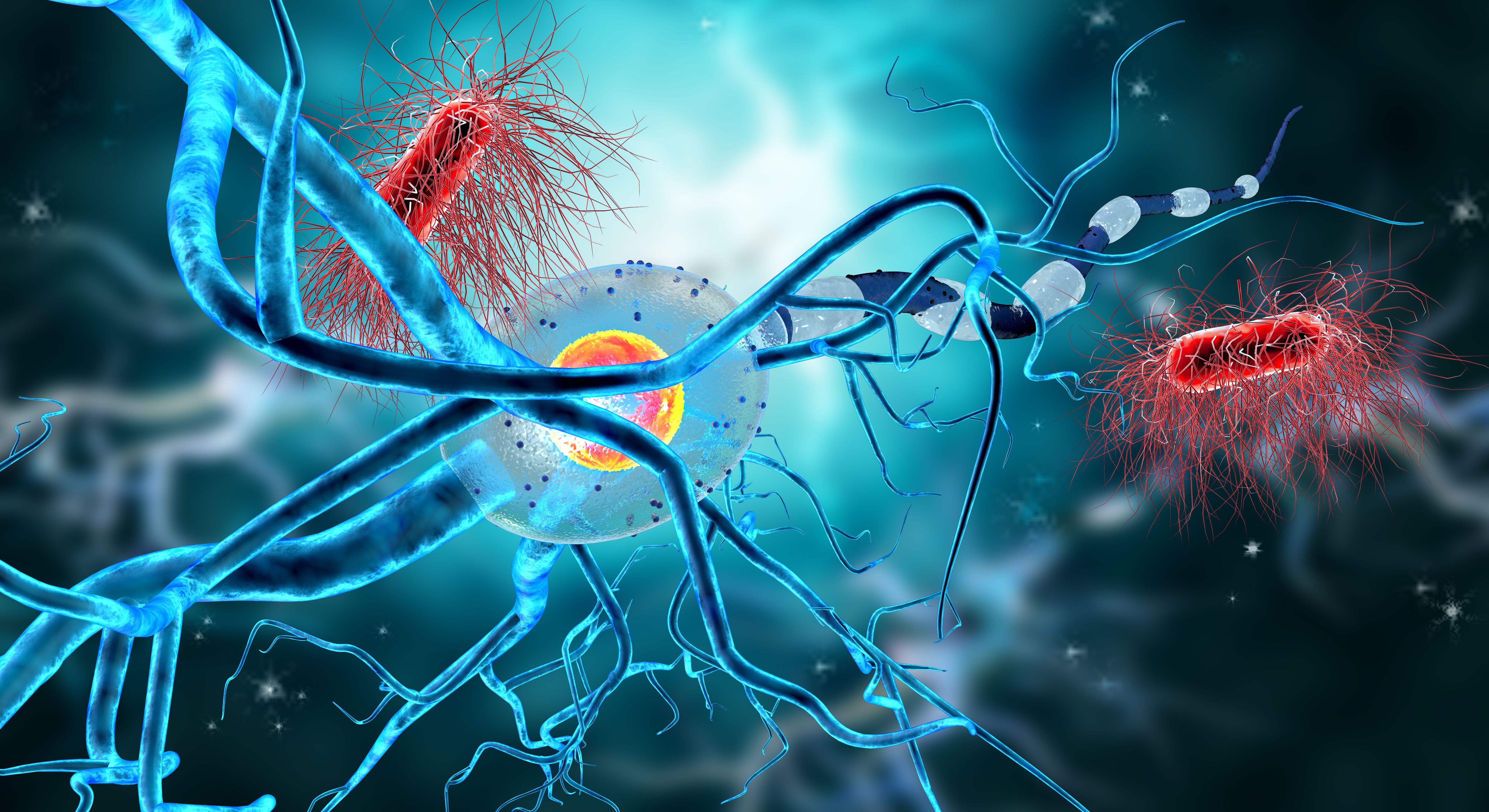- Center on Health Equity & Access
- Clinical
- Health Care Cost
- Health Care Delivery
- Insurance
- Policy
- Technology
- Value-Based Care
Pediatric-Onset MS Associated With Lower Likelihood of Disease Progression
A prospective analysis suggested that those with pediatric-onset multiple sclerosis (MS) who experienced earlier disease-modifying treatment initiation may be less vulnerable to disease progression.
Patients with pediatric-onset multiple sclerosis (POMS) may carry lower risk of disease progression independent of relapse activity (PIRA), according to a recent study published in JAMA Neurology. The results of this investigation also showcased the benefits that initiating disease-modifying therapies (DMTs) can have for reducing the prevalence of PIRA and relapse-associated worsening (RAW) in patients with POMS.
Neurodegenerative Concept | image credit: ralwel - stock.adobe.com

As the authors of the present study note, research in the last 5 years has consistently established that PIRA and RAW are the primary contributors to worsening disability in MS. As RAW is more commonly linked to younger patients with MS and PIRA to older patients, age has become a risk factor of particular interest in MS research. Due to this discrepancy, the researchers interpret recent evidence as “suggesting that aging, via different immunologic and pathophysiologic mechanisms, may increase neural susceptibility, amplify tissue damage, and decrease resilience to injury.”
However, data tracking long-term disability accumulation in individuals with POMS and the prognostic effects of DMTs in this population are lacking. Using the Italian MS Register (IMSR), researchers investigated the initial occurrences of PIRA and RAW in patients with relapsing MS (RMS) characterized as having POMS, adult-onset MS (AOMS), or late-onset MS (LOMS). Furthermore, the impact of DMT initiation was analyzed across the entire cohort.
Data were prospectively gathered from June 1, 2000, until September 30, 2021. The IMSR provided patient information throughout 120 MS centers with 16,310 eligible patients with MS. Researchers’ primary outcomes of interest were the age-related prevalence and adjusted HRs for RAW, PIRA, and the factors associated with each.
Of the 16,310 included patients, the POMS group consisted of 1383 patients with an average onset age of nearly 16 years, the AOMS group of 14,113 with an average onset at approximately 23 years, and the LOMS group of 634 who had a mean age of onset of just over 52 years. Measurements of confirmed disability accrual were defined as at least a 48-week disability increase, which was assessed using the Expanded Disability Status Scale.
PIRA incidence was more heavily linked to patients with AOMS (HR, 1.42; 95% CI, 1.30-1.55; P < .001) and LOMS (HR, 2.98; 95% CI, 2.60-3.41; P < .001) compared with those with POMS. The AOMS and LOMS groups also exhibited higher levels of baseline disability than patients with POMS, shorter percentages of time undergoing DMT (82.2% and 85.7% vs 87.4%; P < .001), and shorter disease duration (2.72 years and 1.68 years vs 5.59 years; P < .001).
Among the factors linked to PIRA were less exposure to DMT (HR, 0.69; 95% CI, 0.64-0.74; P < .001), delayed exposure to DMT (HR, 1.16; 95% CI, 1.00-1.34; P = .04), extended disease duration (HR, 1.04; 95% CI, 1.04-1.05; P < .001), and older onset age (AOMS vs POMS: HR, 1.42; 95% CI, 1.30-1.55; LOMS vs POMS: HR, 2.98; 95% CI, 2.60-3.41; P < .001).
Investigators witnessed that PIRA incidence drastically increased with age from 1.3% at 20 years to 9% by age 30, increasing every subsequent decade until reaching rates of nearly 80% by the age of 70. Similarly, occurrences of RAW trended upwards from 0.5% at 20 years to just over 24.1% by age 60.
The authors’ findings add to the established literature on PIRA in patients with early forms of RMS. While PIRA can occur at any age, these results indicate that patients with POMS may carry less risks for PIRA events throughout their follow-ups. Furthermore, this study demonstrated the potential role of DMT in the reduction and management of these incidences across the spectrum of onset ages.
Reference
Iaffaldano P, Portaccio E, Lucisano G, et al. Multiple sclerosis progression and relapse activity in children. JAMA Neurol. Published online November 27, 2023. doi:10.1001/jamaneurol.2023.4455
